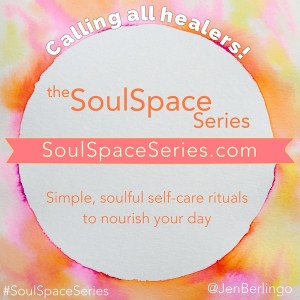We hear the words self-care and self-compassion thrown around quite a bit these days. Being a therapist who was trained at a Buddhist university for experiential and contemplative study, the recent mainstream buzz about the inherent health of these concepts is music to my ears. Writing prescriptions for both self-care and self-compassion seems to come into play with most of my clients during the course of therapy. (And for myself and my loved ones, for that matter!)
Okay, so what's the difference between self-care and self-compassion? Self-care can take the form of setting healthy boundaries with others, bracketing time for relaxation and personal-care, socializing, making art, and doing other enjoyable activities. Self-compassion is a way of relating to yourself when you are having a difficult time, in the very moment of suffering.
Actively engaging in self-care is traditionally met with negative feedback involving words like "selfish" or "indulgent" or "self-centered." When I became conscious of creating space to honor myself in these ways in my own life, I would share this with others in hopes that it might allow them to consider the same. For example, if I got a massage or took a day off work to rest, the phrase I heard in response quite often was, "Must be nice!" which implies that it's a luxury to do so, and the person speaking that would never consider this as an option for themselves. The idea of including self-care in your life, for many of us, is a process of unlearning and shifting mindset. It's about giving yourself permission to include this healthy way of being into your awareness and your schedule.
This Spring, I had the opportunity to hear Dr. Kristin Neff speak at a Women's Symposium at Stanford about the importance of both self-care and self-compassion, and why helping professionals need self-compassion in order to be at all effective in working with others. (You can read more on her thoughts by clicking here.) Her talk excited me. She is speaking my language:
Not only are concepts of self-care and self-compassion NOT SELFISH, they are KEY to helping others.(You know, just incase we needed to convince the naysayers.)
Those of us who help others (whether therapists, doctors, teachers, parents, adult child of aging parent, etc) sit with the pain of others daily. Doing so can bring up discomfort, fear, and eventually burnout. That's why engaging in empathic work with others must start with first having compassion for ourselves. Many of us did not grow up with the message that it is okay to acknowledge our own pain or vulnerability and make it known, so a "grin and bear it" or "stiff upper lip" sort of mentality develops. That's a natural response to receiving such a message, but this is not useful to our personal growth, or in caring for others. This is why an integral part of my passion and my work is in supporting caregivers and helping professionals in developing realistic, workable ways they can make space to honor their own suffering (humanity) in order to avoid empathy-fatigue.
I work with my clients on exercising their self-love muscles, which have often atrophied by adulthood due to disapproving introjects and societal messages around weakness or selfishness. I collaborate with my clients to develop and teach practical, doable ways of working self-compassion and self-care into their daily living.
Over the next few weeks, I will be publishing a series of blog posts here devoted to specific ways of doing this. Be sure to follow along on facebook or twitter to see when the next entry is posted for inspiration for your own journey.














